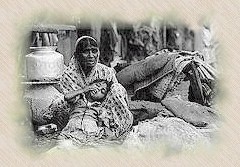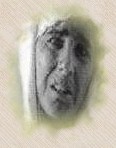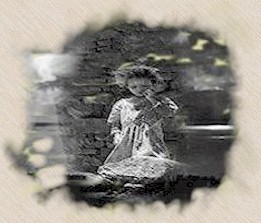|
|
||||||
|
||||||
|
Lives of underprivileged people |
||||||
|
||||||
|
|
||||||
|
Xaenub Mirxa |
||||||
|
This is the story of Neelam Colony, located in the hub of Clifton and surrounded by paradisial houses, a vivid contrast of affluence and penury manifested by abrasive apathy and inequity. Shamshad is just another one of the many sole bread-winners of the family, saddled with the responsibility of being mother of five youngsters, a wife of an unemployed, socially frustrated man and a solitary provider, she sheaths herself with a life woven with the fabric of compromise and deprivation. She works as a day time “maasi” for one of her wealthy neighbours who pay her Rs. 1,500 (per month) for her services. The fact that she has to pay Rs.1,500-2,000 as rent to the landlord is something that she has to deal with on her own. Other bills that include electricity, water supply, gas, etc. are not charged in that amount and have to be paid separately. She stoically concedes to the reality that her family has to resort to the “lungr” of a shrine near by for food when it becomes a physical impossibility to sleep upon an empty stomach. Zarrar too, like Shamshad is another tenent in the colony. He is employed by the ISS and seems to be better off financially in comparison. However, despite the prefigured salary that he receives without fail every month, he finds it increasingly difficult to make ends meet. Not only does he have to support his family in Karachi, but also has to provide for his old and divested parents in Punjab. He bitterly resents his rather influential neighbourhood consisting of people trusted by the government to provide for informal settlements like his and for people like him, desperately in need of all the help that they can get. To the rich and prosperous middle classes, these “abadis” are an eye-soar. They detest their existence because their property value goes down if such a settlement emerges in their neighbourhood. Fehmida, a 20-year-old with an epileptic sibling and an abusive, alcoholic husband feels unprotected and abased living in the colony. She talks about her phlegmatic employers: How happy, contended and imperturbable they are in their separate, secure and clean locality, with their own transportation system, health, education, social facilities, underground sewerage, filtered water and their own world of supermarkets, clubs, eateries and places of entertainment. They are not particularly agitated or dismayed about the abject living conditions of the poor. And why should they be? It is the tragic tale of two cities, two cultures, two worlds exisiting side by side. In the midst of a vulgar and paltry display of wealth, the poor perish. Then there is the role of drug abuse, gambling, prostitution, burglaries and other crimes against men which degrade this shelter to an even lower ebb of penury. Moreover, official authorities harass these innocent people for crimes not even committed, yet are suspected of being an active part of the nefarious activities being conducted in the colony otherwise. The wicked get their way, while the helpless and inculpable are made to suffer. It is heartrending to observe that very few people pay grave attention to what is happening around them, even fewer try to understand why people abandon their pasts for vain hopes of a better future in some alien land. |
||||||
|
|
||||||
|
Afzal Upal |
||||||
|
It was not easy living as a widow in Saharanpur but Akbar Mai quietly accepted it as her fate. It wasn't that she missed her husband much. He had been a no-good bum anyway - though years of separation had erased many of the worst scars. Most of the occasions when she missed him were when her son Khursheed misbehaved or refused to listen. At such times she cried. She felt weaker as Khursheed grew bigger. This year he had grown taller than her. She would have loved to be proud of him but he rarely gave her a chance - except on the occasions when he won a cricket game and was carried on the shoulders by the mohalla kids. But such moments of happiness were fast becoming rarer. Khursheed was only sixteen but she had heard that he had been seen smoking. She had suspected as much because she could smell it from his clothes whenever she washed them with the dhobi danda, which was often (his usual shalwar suit smelled like donkey shit: she was almost too disgusted to wash it but she had to - it was Khursheed's only good suit). She was worried about him as she suspected that he was smoking something other than just K-2 cigarettes. She worked hard sewing neighbor's clothes and working in the house of the local Sayyids to make enough money to feed the two and pay his school fees but all he seemed to be interested in these days was going out with his awaara friends. She couldn't figure out what she had done wrong. She tried to send him to Moulvi Sahib to learn Quran and he did learn the Qaida. She blamed all his bad habits on his bad company and a lack of self-discipline. How much had she prayed for Khursheed's growing up and what dreams had she had of him studying and becoming a big officer. He was only ten when Khursheed's father passed away. She soon realized that Khursheed needed somebody to discipline him, to beat him up. Her husband had been good at that. The only other times she missed her husband was whenever her neighbor Ramzan gave her that greedy look. "How shameless", she always thought, considering that he had a jawan daughter and a wife at home. "What, Suraiya must now be ten". Ramzan had offered to have her as his second wife but Akbar Mai had refused. Many a times had she heard Ramzan beat his wife. She thought that she had done her time to society and did not deserve a second term. Listening to the yells on the other side of the wall, those painful memories of her own married life would come back to her. She could feel his kicks in her chest, his slaps, him pushing her across the floor, him grabbing her from the ear and dragging her and locking her out of the house. Tears always came to her eyes to think of those moments. She had almost gotten used to the complaints she received from the neighbors about Khursheed. Yesterday he beat up somebody's kid. Today he stole from chaabri waala. Her standard response was that it couldn't have been only Khursheed's fault: others must have done something to provoke him. Yet she always felt sorry for Khursheed's victims and she would swear at her son and run after him with a danda as soon as he came home. All that would be achieved was that he would let her chase him out of the door, out of her world. She knew her limitations; the four walls of the house. That's why you need a man, she thought, because a man's world in not limited to four walls. A man is not only maalik of the household but also king of the outdoors. Khursheed was fast becoming a man who lived more and more in the outside world. He wasn't afraid of her anymore. When he had brought home that set of nude cards, she had taken out the danda but he had simply grabbed it from her and thrown it away. That day, for the first time, he had stayed away from home all night. Then she felt guilty for having chased him out. The next day when he came home, she had forgotten all her anger and had kissed him on the forehead as he tried to push her away. Why was he so angry, she had thought. But in the end he did sit down with her and eat roti and even started talking to her. In a conciliatory tone, she had reminded him that he was a grown man now and should find some work and help her with the household expenses. "Look at me" she had said, "I'm an old woman of forty. I cannot do manual labour anymore. The house needs repair. It leaks in the rain. And look at the walls. They look as if they are about to fall." She remembered telling him to talk to his uncle about letting him work at his grocery shop. He had said he would. She had not believed him but she had felt better. From the style of the knocking on the door she knew it must be yet another neighbor come to complain about Khursheed. But she wasn't prepared for five men - including Ramzan - barging in and asking her very rudely to come with them. She asked what for, but they started dragging her and despite her wailing and crying they kept pushing her until they got to Sayyid Sahib's havaili. There the verdict was read in front of men and children and the few women who had gathered to watch the spectacle. Sayyid Sahib asked her where Khursheed was. She said she didn't know. They didn't believe her. From what she could gather, that morning when Sughra, Ramzan's daughter, had gone out for tutti to the field, Khursheed had grabbed her near Sayyid's tube-well and tried to do the `bura fail' with her. Her spontaneous reaction was to say she must have done something to provoke him and that Sughra was always a bit too friendly with Khursheed. But she felt sorry for the poor girl. Besides, no one was listening to her. They had already decided what was to be done. Sayyid Sahib said that it was the only just thing to do. The Quran allowed for "an eye for an eye": If you kill someone the only deserving punishment is that you too should be killed; beating someone can only be avenged by beating that person back. "Therefore", Sayyid Sahib said, "the Punchayat, in accordance with the tradition and the Shariah, has decided that Akbar Mai should be assaulted by Ramzan just as Sughra has been assaulted by Khursheed." |
||||||
|
|
||||||
|
Jamal Abro |
||||||
|
"The mother broke down, her heart crushed, her very vitals cut into pieces. She screamed, Pirani, oh, my little Pirani! The girl shrieked back..." The Brohis were coming down from the hills. The winter had just set in. The cold, dry wind was sweeping down the dust and the gravel ahead of them. They had two or three bullocks and one camel. Two dogs with wagging tails followed them. The men were barefooted, their shalwars (trousers) short and torn. On their heads they wore conical, embroidered caps full of dust and dirt. The women donned long robes with pretty embroidered designs now shredded and fading away as a result of long wear. On the bullocks they had loaded huge sacks full of twine and ropes twisted out of goats hair. The young children sat huddled on the sacks, the parents driving the animals with their sticks as they kept humming, Hee, hoon, hee, honn.... with their beards they looked handsome and dignified, but penury-stricken and weather-bitten. They pitched their camp on a secluded spot where they distributed pieces of dry bread. From another cloth bag they took out some lumps of dried curd, which they put in pitchers full of water. Each one gulped down a few draughts. Little Pirani, hardly nine years old, clapped her hands as she cried, "We are now in Sindh! We will have such good things and so many!" Her father took off his cap and scratched his head full of lice. The mother looked annoyed. Other children were also dreaming of the good and sweet things awaiting them on the plains. In the valley of Sindh, they built for themselves small shacks made of hay. They slept on hay and put on slippers made of hay. They sold the ropes and bamboo sticks. Sometimes, they starved by turn. The winter was over. It was time to return to the hills. The poor children went without good things. Pirani's father looked at his wife's face meaningfully. There was anger and desolation in the glances they exchanged. The wife felt scared and looked at Pirani's shirt, which she had washed only that morning. There was no defiance in her silent, miserable eyes. Pirani's father approached the neighboring village and greeted the people with a loud, Salamalaikum. He asked, Brothers, does any body need a girl for marriage? He meant to sell his little daughter. For the Sindhi peasant, it is not easy to get a wife. Many girls are pledged as soon as they are born. It costs money to have a wife. Lalu's father looked at his adolescent son who had a husky voice and the bare trace of a beard. Both Lalu and his father accompanied the Brohi to his hamlet. The Brohi dogs barked as they saw the Sindhi strangers approaching. Pirani, her hair loose and her back uncovered, ran and held her mother tightly by the shirt. Lalu's father felt her body. Pirani's father, anxious to strike a good bargain, exhorted: She has lots of flesh. She is no weakling! The dogs would not stop barking and they kept it up till they had followed the strangers back to the outskirts of the hamlet. The dogs then wagged their tails as if they had done their duty. Outside the hamlet, after considerable high-haggling the bargain was struck for sixty rupees! The Brohis were now getting ready to return to the hungry hills. They pulled down the shacks and loaded the bullocks. The children kept chattering about the hills and the babble trees on the hills. Lalu's village was on the way. Pirani's mother walked abreast, almost touching her daughter, while the father offered his finger for Pirani to hold. Are we returning home? asked Pirani. The father nodded. He could feel a corrosive void turning and twisting within him. The mother felt as if something heavy were hammering within her breast, trying to get out. Lalu's People were waiting. As they drew nearer, Pirani's mother twitched convulsively and clasped her daughter. Lifting her high, she pressed Pirani to her bosom. The mother and daughter were panting, their hearts pounding fast, their eyes panic-stricken. Others stood around them. The father with his trembling hands lurched forward and tore away his daughter with a look of finality. The mother broke down, her heart crushed, her very vitals cut into pieces. She screamed, Pirani, oh, my little Pirani! The girl shrieked back... The birds flew away in panic. Lalu s father took hold of Pirani who lay huddled on the ground. Pirani's father was sobbing, his tears flowing down his cheeks and through his beard to the ground. But he was holding his trembling wife and pulling her back. The caravan started moving. Pirani was hysterical, crying for her father and mother. The mother was being dragged away, but her loud lament rent the air from afar. Oh, Allah , my Pirani, baby Pirani, may the hills be on fire, may Sindh prosper, oh, my little Pirani! They dragged the struggling child inside her new home. But she was slipping away from their hands, kicking, biting, screaming and bouncing like a rubber ball. Lalu ran inside and soon brought a piece of jigger which was put into Pirani's mouth. But the sweet came out gurgling. The child's delicate throat was hoarse with cries. Between tears and hiccups she kept moaning about her father and mother. In vain Lalu was in a fury now. He brought out a dagger and opening his eyes wide, he thundered: Now, will you shut up before I carve you in pieces? Little Pirani, rolling on the dust, gave a scream with all that was left of her strength. The goat in the courtyard pricked up her ears and started licking her kid. A woman hugged her daughter in fright. Yes, Pirani is still alive today. One of her sons is a policeman, and the other a life convict in a prison. |
||||||
|
|
||||||
|
Saima Shah |
||||||
She felt that she was in a vast place. Much bigger than the warm cocoon she had been slowly growing in, always sleepy, soothed by the beating of her mothers heart. She opened her eyes…she did not know that she had opened her eyes just that it was suddenly very light and bright. She did not even know that she was a she. She wanted to hear the soft drumbeat she had been used to, but somehow there were these strange peering faces who said, 'Oh!.It's a girl. Looks just like the mother.' 'Is that what I am? She wondered. It sounded so special. A girl). She did not know that she was the second girl to be born in the family. She did not know that her mother feared her mother-in-law's reaction even as the nurse was wrapping sheets around her sticky babiness. She did not know that her father who was soon to be informed would be far from ecstatic. That he will be disappointed at her arrival and tell his office colleagues, 'it's another girl.' And not, ' I have a brand new daughter.' That one goat will be sacrificed after seven days and that her father will embarassedly tell the Qassai that he won't need another animal. This is how a girl is usually welcomed in this part of the world. Somehow a little sheepishly. With fortitude. 'Allah karey agli dafa larka ho', is the most positive refrain. Beggars on the street always pray that a pregnant woman has a boy. 'Allah chand sa beta dey'. Girls grow-up almost guilty of their failure to be men. Sons are more valuable and somehow superior... The little girl born a few minutes ago will realize that the most important thing about her personality is her appearance and age. That she is like a fruit or an animal or a product which has to fulfill certain specifications and criteria. That other people will make her life's decisions from the day she is born to the day she dies. It is not enough that she just be pretty but that she ought to be pretty just so. The ideal of feminine beauty is rigidly defined much like a meter or a yard. Songs like 'goray rang ka zamana'; words like 'goriya' give clearer examples than any other theorizing. The colour complex is a characteristic of our collective subconscious, so it fits that a girl ought to be fair(er) to be considered beautiful or acceptable. Since the purpose, as well as the value of, women lies in their physical person, it does not surprise one that marriage is the real destiny of a woman and these decisions are much affected by physical value. |
||||||






